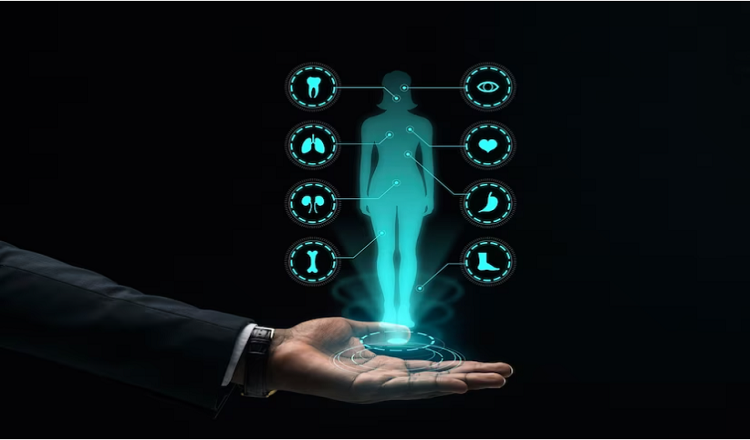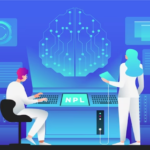
Are you sick and tired of feeling powerless over your health? The good news is that advances in health technology now give you unprecedented control over your health. From telehealth to wearable technology, tailored medication to health data analytics, and even artificial intelligence in healthcare, health tech advancements are altering the way we approach healthcare. The rewards are too great to pass up, and the possibilities are unlimited.
Health tech advancements are playing a bigger role in empowering individual health in the USA. Health tech advances provide a personalized, cost-efficient answer to the challenges of rising healthcare expenses, limited access to healthcare services, and a growing need for preventative healthcare. Utilizing technology, people may now keep track of their health, receive individualized healthcare, and even foresee and stop health issues before they arise. The end result is a patient population that is more empowered and engaged, with better health outcomes and lower healthcare expenditures.
It’s time to embrace the potential of health tech breakthroughs and take charge of your health, whether you’re a tech enthusiast or a healthcare skeptic. There is a health tech breakthrough out there for everyone, from wearable fitness trackers to virtual doctor consultations. In order to learn how health tech advancements can improve your health and change your life, let’s explore the fascinating world of health technology.
Telehealth
The term “telehealth” describes the distant provision of healthcare services via technology. It includes a wide range of services, such as online health education, remote monitoring, and virtual consultations. Due of its many benefits, telehealth is becoming more and more popular in the USA. First and foremost, telehealth eliminates the need for people to physically travel to a healthcare centre in order to get healthcare services. People who reside in rural or distant locations may have limited access to healthcare services, thus this is especially crucial for them.
Additionally, telemedicine has the potential to be economical for both patients and medical professionals. By reducing the need for in-person appointments, which can be costly and time-consuming, it lowers healthcare expenses. Finally, through increasing patient participation and adherence to treatment protocols, telemedicine also fosters improved health outcomes. In the USA, telehealth firms like Livongo and Teladoc, which offer remote monitoring services for those with chronic diseases, are two examples. Teladoc offers virtual doctor consultations. Overall, telehealth is an innovative technology with the potential to change the US healthcare system.
Technology for the Body
Electronic gadgets that can be worn on the body, such as smartwatches, fitness trackers, and even smart clothes, are referred to as wearable technology. These gadgets monitor the wearer’s heart rate, sleep patterns, physical activity, and other aspects of their health and fitness using sensors and other technology. The benefits of wearable technology for tracking health are numerous. Individuals can follow their health data in real-time, which makes it simpler to spot trends and decide on their health. Furthermore, because people may act on the information these gadgets collect about their health, it encourages a more proactive approach to treatment.
The Apple Watch, Fitbit, and Garmin are a few examples of wearable technology products that are widely used in the USA. People frequently use these gadgets to keep track of their physical activity, check their heart rates, and even spot unusual heart rhythms. Healthcare providers are also using them more frequently to monitor patients remotely and give individualized care. In general, wearable technology is a promising tool for tracking health that can assist people in taking charge of their health and enhancing their general wellbeing.
Individualized Medicine
Personalized medicine is a method of providing healthcare that develops individualized treatment regimens by taking into consideration each patient’s particular genetic, environmental, and lifestyle characteristics. Using cutting-edge technology, such as genomics, proteomics, and metabolomics, this method can pinpoint specific biomarkers that can be used to gauge a patient’s prognosis. Personalized medicine seeks to enhance patient outcomes while reducing side effects by offering more precise and effective therapies.
There are several benefits to individualized medication. It is possible to raise the likelihood of positive outcomes and decrease the risk of negative consequences by customizing therapies to a patient’s unique needs. By reducing unnecessary procedures and enhancing the effectiveness of healthcare delivery, it can also result in cost savings. In the USA, examples of personalized medicine include the use of targeted treatments to treat cancer based on a patient’s genetic profile and the use of genetic testing to estimate an individual’s risk of contracting specific diseases. Overall, customized medicine is a fascinating and quickly developing discipline that has the power to completely change how Americans approach healthcare.
Data analytics for health
Large volumes of healthcare data are analyzed using cutting-edge software and algorithms in the field of health data analytics. Electronic health records, medical imaging, and even patient-generated data from wearable technology can all be included in this data. Finding patterns and insights that can be used to enhance patient outcomes, lower costs, and improve healthcare delivery are the main objectives of health data analytics.
Analytics of health data has many benefits. Large amounts of data can be analyzed to find trends and patterns that can guide clinical judgment and enhance patient outcomes. It can also assist healthcare professionals in locating opportunities to boost productivity and cut expenditures. Predictive analytics are used to identify individuals who are at risk of acquiring specific diseases, and natural language processing is used to extract data from medical records for study. These are examples of health data analytics in the USA. Overall, health data analytics is a potent instrument that has the potential to revolutionize the US healthcare sector.
Health Care and Artificial Intelligence
The use of sophisticated algorithms and machine learning techniques to evaluate vast amounts of healthcare data and generate predictions or suggestions for clinical decision-making is known as artificial intelligence (AI) in the healthcare industry. Image analysis, drug discovery, and even predictive analytics can all be done with AI in the healthcare industry.
AI has many benefits for the healthcare industry. AI can assist in finding patterns and insights that may not be obvious to human therapists by analyzing vast amounts of data. This may result in better patient outcomes, more precise diagnosis, and more focused therapies. By automating operations and optimizing procedures, AI can also assist healthcare professionals in lowering costs and increasing efficiency. The use of machine learning algorithms to evaluate medical imaging and spot early indicators of sickness and the use of natural language processing to extract information from medical records for study are two instances of AI in healthcare in the USA. In general, AI has the ability to transform the US healthcare sector and enhance patient outcomes.
Conclusion
In conclusion, advances in health technology are drastically altering the US healthcare system. These breakthroughs, which range from wearable technology to artificial intelligence, have the potential to change the way we approach healthcare and give people more control over their own health.
In this article, we’ve covered a number of significant developments in the field of health technology, including telemedicine, customized medicine, health data analytics, and artificial intelligence. The benefits of these technologies, such as better patient outcomes, lower costs, and more effective healthcare delivery, have been highlighted.
The importance of health tech advancements in the USA must be emphasized. These developments not only increase access to and affordability of healthcare, but they also allow for more individualized and focused treatment regimens for patients.
We urge readers to adopt these technologies to empower their health in light of the advantages of health tech advancements. Individuals can take charge of their health and participate actively in their own care by utilizing these advancements. The implementation of health tech breakthroughs on a large scale has the potential to enhance the health and wellbeing of people in the USA.
Read More You May Like:








